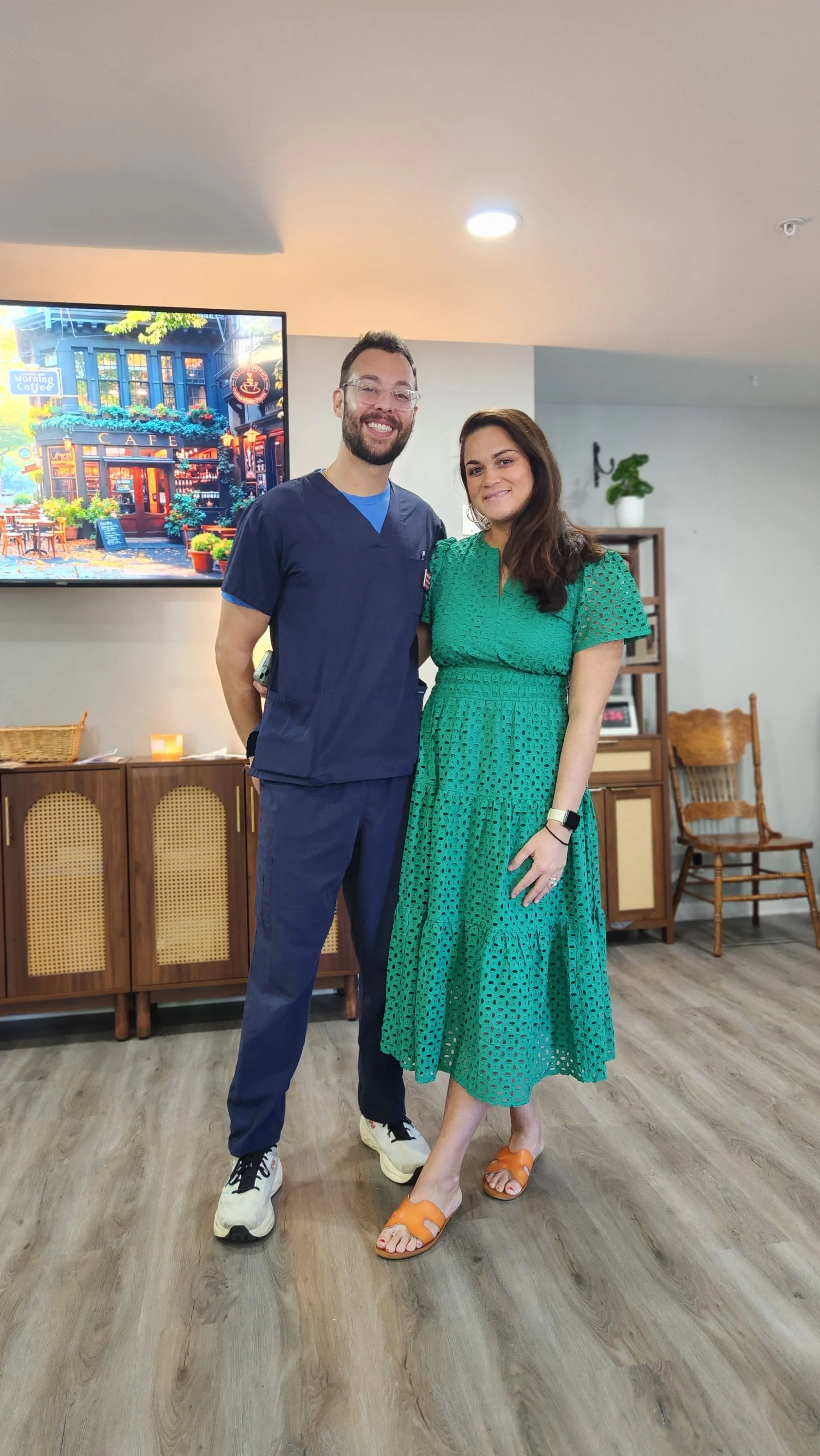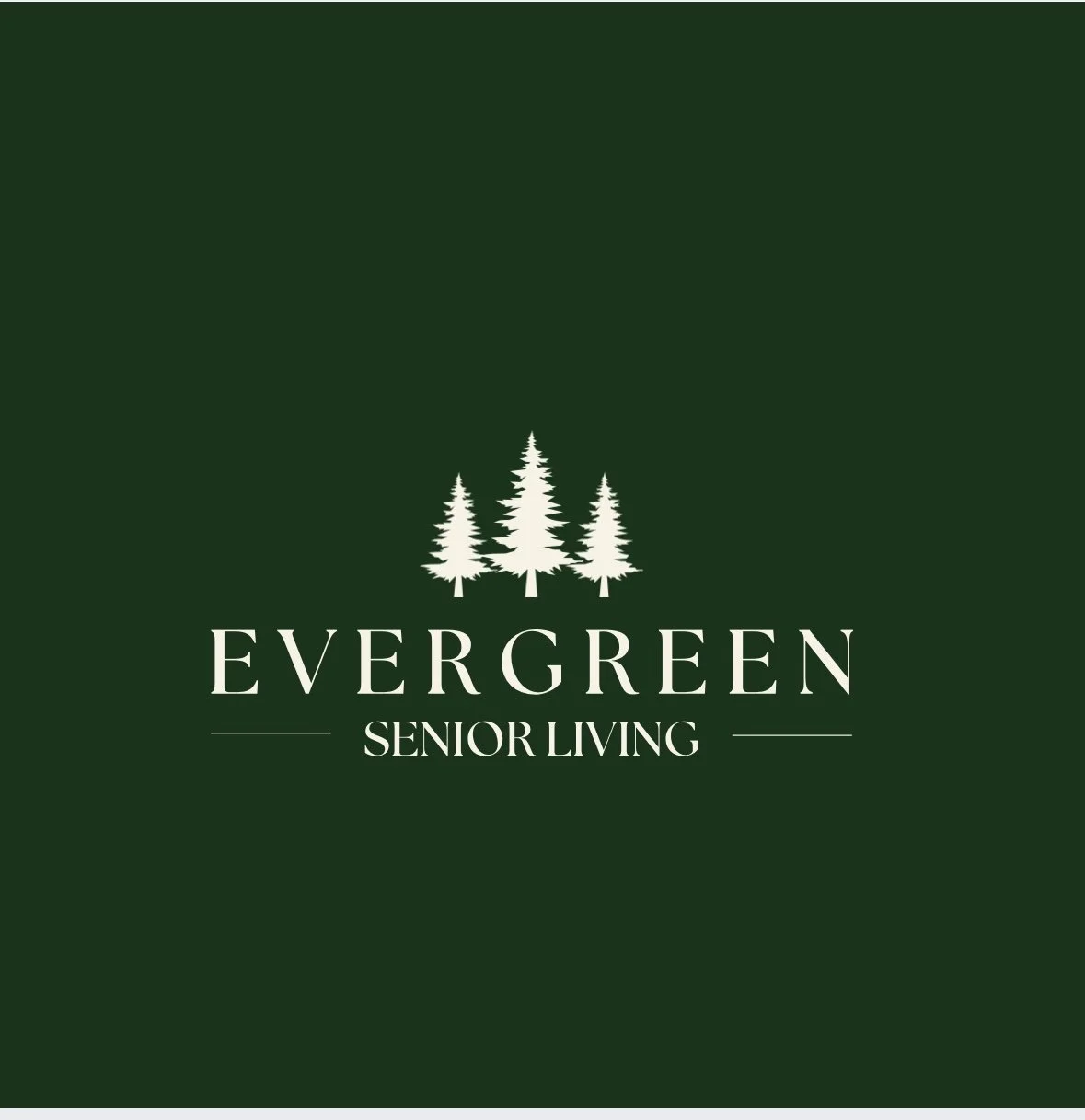Why Families Choose Small Homes Over Big Senior Living Facilities
When the time comes to consider senior living options, families are faced with an important choice: large senior living facilities or smaller, more personal care homes. While big communities can offer a variety of amenities, more and more families are choosing small homes for their loved ones — and for good reason.
In this article, we’ll explore why small senior living homes are becoming a preferred option and what makes them so special.
1. Personalized Care and Attention
In a large facility, staff members often have many residents to look after. This can sometimes lead to less one-on-one interaction.
Smaller homes typically care for fewer residents, which allows caregivers to truly get to know each person — their routines, preferences, and needs. This means your loved one isn’t just another number, but a valued part of a close-knit home.
2. A Home-Like Environment
Large facilities can feel overwhelming and even intimidating, with long hallways, elevators, and bustling dining halls.
Small homes provide a warm, home-like setting that feels familiar and comforting. Many families find that this environment helps their loved ones adjust more easily and feel less stressed during the transition.
3. Stronger Sense of Community
With fewer residents, small homes foster a true sense of family. Neighbors quickly become friends, and staff often build long-term, meaningful relationships with residents.
Families appreciate knowing their loved one is not only safe but also surrounded by a supportive, caring community.
4. Flexibility and Personalized Routines
In large senior living facilities, schedules often have to be strict to accommodate so many people at once. This can make it harder for residents to keep their personal routines.
Small homes usually offer more flexibility — whether that means eating breakfast a little later, enjoying favorite hobbies, or spending quiet time outside. These small details can make a big difference in overall happiness and quality of life.
5. Peace of Mind for Families
Families often feel more comfortable knowing their loved one is in a smaller setting where they won’t get “lost in the crowd.” Direct communication with caregivers is typically easier, and updates about daily life come more naturally.
This gives families confidence that their loved one is receiving the attention and dignity they deserve.
6. Safety and Comfort
Because of the smaller size, staff can more closely monitor residents and respond quickly to needs. The environment is also easier to navigate for those with mobility challenges, reducing risks of falls or confusion in large, busy spaces
When Large Facilities Make Sense
It’s important to note that large senior living facilities can be the perfect fit for some families. They often offer a wider range of amenities, social activities, and specialized programs that many seniors enjoy — especially those who are more independent and love being part of a lively community.
For others, a larger facility may serve as a great first step in the senior living journey. Then, if more hands-on or personalized care is needed, residents can transition to a smaller personal care home where they receive closer attention in a homelike environment.
Final Thoughts
While big senior living facilities have much to offer, many families are finding that small personal care homes provide the comfort, attention, and community that truly feels like home.
The good news is, families don’t have to choose one path forever. Seniors may enjoy the activities and amenities of a larger community first and then move into a smaller home as their care needs increase.
If you’re exploring senior living options, take time to visit both large and small settings. Experiencing the difference firsthand can help you decide which is the best fit for your loved one today — and in the future
Meet the Founders of Evergreen Senior Living
We are Dr. Nidhi Patel, PT and Dr. Jesse Zinn, PT—two physical therapists with a shared passion for helping older adults live fuller, healthier, and more connected lives. For years, we worked with seniors in the clinic and saw firsthand the challenges they and their families faced at home.
Too often, we met families who were overwhelmed: managing medications, juggling doctor visits, and worrying about safety—while also wanting their loved one to feel happy and cared for. Time and again, we heard seniors say, “I just want to feel at home.”
That’s when we knew something had to change.
Why We Created Evergreen Senior Living
Evergreen Senior Living was born from a simple but powerful idea: care should feel personal. We envisioned a space where residents receive the attention they deserve, where families feel connected no matter the distance, and where the warmth of home meets professional care.
Instead of a large, crowded facility, we chose to create an intimate 8-bed personal care home in Winder, Georgia. This smaller size allows us to truly know each resident—their routines, their preferences, their story.
Our Values
At Evergreen, everything we do is guided by our three core values:
🌿 Compassion – Respecting dignity while providing skilled, attentive care.
🌿 Connection – Keeping families close through updates, photos, and shared moments.
🌿 Comfort – Creating a home-like environment that feels safe, warm, and welcoming.
Our “Why”
Opening Evergreen was more than a professional step—it was a personal mission. We asked ourselves, “What kind of place would we want for our own parents or grandparents?” Evergreen is our answer: a home where every resident is cherished, supported, and surrounded by genuine compassion.
Welcome to Evergreen Senior Living. We’d be honored to care for your family like our own.
The Emotional Side of Choosing a Senior Living Community
Making the decision to move yourself or a loved one into a senior living community is never just about logistics—it’s about emotions, trust, and peace of mind. At Evergreen Senior Living, we understand that this choice carries both relief and uncertainty for families. That’s why we strive to create an environment where residents feel cared for and families feel connected, no matter the distance.
Recently, we welcomed a resident whose family lives further away. Naturally, their loved ones were concerned about how to stay involved while also ensuring daily care was managed. Our team worked closely with both the resident and their family to provide reassurance and consistency. From sending regular photos and updates, to carefully managing medications, to making personalized accommodations for daily routines, we made sure this transition felt smooth and supported.
This experience is just one example of how Evergreen Senior Living goes beyond basic care. We know families want more than safety—they want their loved ones to feel truly at home. By blending high-quality personal care with emotional support, we help both residents and families feel secure in their decision.
If you’re exploring senior living for yourself or someone you love, remember that it’s not just about finding a place—it’s about finding a community that understands the emotional side of this journey. At Evergreen Senior Living, we’re here to make every resident feel like family, no matter how near or far their loved ones may be.
Looking for the right fit for your family? Schedule a tour with Evergreen Senior Living today and see how we make care feel personal
The True Cost of Aging at Home vs. Senior Living
As families explore the best care options for their loved ones, one of the biggest considerations is cost. Many people assume that staying at home is more affordable than moving into a senior living community. But when you break down the numbers, the opposite is often true.
At Evergreen Senior Living, we know that choosing where to age is about more than finances—it’s about quality of life, safety, and peace of mind. Still, understanding the cost differences can help families make informed decisions.
The Cost of Aging at Home
Aging at home can feel comfortable and familiar, but to provide the right level of care—especially for seniors who need 24/7 support—expenses add up quickly.
Here’s a breakdown of the monthly costs for aging at home with a full-time caregiver (at $15–20/hour):
24/7 Caregiver: $10,800 – $14,400
Food & Groceries: $500 – $800
Mortgage or Rent: $1,000 – $2,000
Utilities & Bills: $300 – $600
Home Maintenance & Repairs: $200 – $400
Activities & Outings: $200 – $500
Exercise / Wellness: $50 – $100
Total per month: $13,050 – $18,900+
And these numbers don’t include unexpected medical expenses, transportation to appointments, or the cost of home modifications like ramps, stair lifts, or walk-in showers.
The Cost of Senior Living
By contrast, a senior living community offers an all-inclusive approach. At Evergreen Senior Living, one monthly fee covers:
24/7 professional care and support
Nutritious meals and snacks
Comfortable housing and utilities
Social activities, outings, and wellness programs
Exercise opportunities with trained PT techs or DPTs
Safe, maintenance-free living environment
Total per month: $4,000-6000+
Cost vs. Value
When comparing $13K–$19K at home versus $4K at a senior living community, the difference is clear. Senior living is often 3–5 times more affordable than hiring full-time in-home caregivers—while also offering built-in safety, socialization, and professional healthcare oversight.
At Evergreen Senior Living, we designed our community to feel like home, while removing the stress and unpredictability of aging at home alone.
Why Families Choose Evergreen Senior Living
Peace of Mind: Loved ones receive consistent, compassionate care.
Social Connection: No more isolation—our small, family-style setting encourages meaningful relationships.
Cost Savings: One monthly rate that is predictable and significantly lower than 24/7 in-home care.
Expertise in Care: Owned and operated by physical therapists who understand safety, independence, and mobility needs.
Final Thoughts
Choosing between aging at home and senior living is deeply personal, but when you compare both cost and quality of life, senior living often provides more value and support for less money.
If you’d like to learn more about how Evergreen Senior Living can provide affordable, compassionate care for your loved one, contact us today to schedule a tour
How Small Senior Communities Improve Mental Health and Reduce Loneliness
As we age, social connection becomes one of the most important aspects of overall health and well-being. Yet, many older adults experience feelings of isolation and loneliness—especially when living alone or in larger, institutional-style facilities where it’s easy to feel overlooked.
At Evergreen Senior Living, we’ve seen firsthand how small senior communities make a profound difference in residents’ mental health. With only 8 residents, our home is intentionally designed to foster connection, comfort, and a true sense of belonging.
The Link Between Loneliness and Mental Health in Seniors
According to the National Institute on Aging, chronic loneliness and social isolation are linked to higher risks of depression, anxiety, and even physical conditions like high blood pressure and heart disease. For seniors, having meaningful relationships and daily interactions isn’t just nice to have—it’s essential for maintaining mental health.
Why Small Senior Communities Are Different
Large senior living facilities can sometimes feel overwhelming or impersonal, with residents getting lost in the crowd. In contrast, a smaller, home-style environment creates opportunities for deeper connections and more individualized attention. Here’s how:
1. Stronger Relationships
In a community of just a handful of residents, everyone knows each other by name. Friendships form naturally, and staff can spend more quality time with each resident, building trust and genuine bonds.
2. A Family-Like Atmosphere
Small senior communities feel more like a home than a facility. Shared meals, daily routines, and cozy living spaces foster a sense of family, reducing feelings of loneliness and helping residents feel truly cared for.
3. Personalized Attention
Because staff-to-resident ratios are lower, residents receive more individualized support—not only with their care needs but also with emotional and social well-being. This creates peace of mind and helps prevent seniors from feeling overlooked.
4. Opportunities for Engagement
Small settings make it easier to participate in group activities, outings, or just casual conversations over coffee. This steady stream of social interaction keeps the mind active and the spirit lifted.
The Mental Health Benefits of Small Senior Communities
Reduced loneliness through daily meaningful connections
Improved mood and decreased risk of depression
Higher levels of engagement in activities and hobbies
A greater sense of purpose and belonging
Choosing the Right Community for Your Loved One
When exploring senior living options, it’s important to consider not only physical care needs but also the emotional and mental well-being of your loved one. A smaller, more intimate community can provide the balance of safety, support, and companionship that promotes long-term happiness.
Fall Prevention Tips for Older Adults: Stay Safe and Independent
Falls are one of the leading causes of injury among older adults, but the good news is that many falls can be prevented. Taking proactive steps can help seniors stay safe, confident, and independent in their daily lives. Here are some practical fall prevention tips for older adults and their families.
1. Keep Moving with Regular Exercise
Staying active helps maintain strength, balance, and flexibility. Gentle activities such as walking, yoga, tai chi, or water aerobics can improve stability and reduce the risk of falls. Talk to a healthcare provider before starting any new exercise routine.
2. Make Your Home Safer
Simple home modifications can greatly reduce hazards:
Remove clutter, cords, and loose rugs.
Install grab bars in bathrooms and handrails on both sides of stairways.
Ensure rooms and hallways are well lit, using night lights for easy navigation at night.
Keep frequently used items within easy reach to avoid climbing or stretching.
3. Wear Proper Footwear
Shoes with non-slip soles and good support can make a big difference. Avoid slippers, flip-flops, or shoes with slick bottoms that can increase the chance of slipping.
4. Review Medications Regularly
Some medications can cause dizziness or drowsiness. Seniors should review prescriptions and over-the-counter medications with their doctor or pharmacist to understand side effects and interactions that may increase fall risk.
5. Schedule Vision and Hearing Checkups
Clear vision and good hearing are essential for balance and safety. Regular eye exams can detect cataracts, glaucoma, or vision changes, while hearing checks can ensure older adults are aware of their surroundings.
6. Stay Hydrated and Nourished
Dehydration and poor nutrition can lead to weakness, dizziness, or fainting. Drinking enough water and eating a balanced diet rich in vitamins and minerals helps maintain strength and stability.
7. Use Assistive Devices if Needed
If recommended by a healthcare professional, canes, walkers, or other mobility aids can provide extra support and confidence when walking.
Final Thoughts
Falls don’t have to be an inevitable part of aging. By making small lifestyle adjustments, older adults can reduce risks and maintain their independence. Families and caregivers play a key role by supporting loved ones in creating a safe and healthy environment.
The Benefits of a Small, 8-Bed Personal Care Home Environment
When it comes to choosing senior living, families often face the question: Is bigger really better? At Evergreen Senior Living in Winder, GA, we believe that smaller is often more meaningful—especially when it comes to care, comfort, and connection. That’s why our 8-bed personal care home offers a unique environment where residents feel truly at home.
1. Personalized, Attentive Care
In large facilities, staff-to-resident ratios can be overwhelming, and seniors may feel like just another number. In a small, 8-bed setting, every resident receives individualized attention. Caregivers know each person’s routines, preferences, and health needs—creating an environment where care feels less clinical and more personal.
2. A True “Home-Like” Atmosphere
Our home is designed to feel like just that—a home. With cozy bedrooms, shared living spaces, and family-style dining, residents enjoy comfort and familiarity. Smaller settings encourage independence while still offering the support seniors need.
3. Stronger Relationships & Community
An intimate setting allows residents to form genuine connections with both staff and fellow residents. Meals feel like family gatherings, and activities foster real friendships. This sense of belonging often reduces loneliness and enhances emotional well-being.
4. Safety & Peace of Mind
With fewer residents, staff can closely monitor health changes, provide quick responses, and maintain a safe environment. Families can rest assured knowing their loved one isn’t overlooked in a crowd.
5. Flexibility in Daily Living
Unlike larger facilities with rigid schedules, small personal care homes offer flexibility. Residents can enjoy routines that match their lifestyle—whether that means sleeping in, enjoying favorite meals, or participating in personalized activities.
Why Families in Winder Choose Evergreen Senior Living
At Evergreen Senior Living, our mission is simple: to combine professional, compassionate care with the warmth of a small, family-like community. Our 8-bed personal care home in Winder, GA offers the perfect balance of support, independence, and comfort for your loved one.
👉 Ready to learn more about how Evergreen Senior Living can support your family? Contact us today to schedule a tour and see the difference a small, caring environment makes
Understanding Levels of Care for Older Adults
As our loved ones age, their needs can change — sometimes gradually, sometimes quickly. Choosing the right living arrangement starts with understanding the different levels of care available for older adults. At Evergreen Senior Living, we believe knowledge empowers families to make confident, informed decisions.
Independent Living
Best for: Older adults who are active, healthy, and want a maintenance-free lifestyle.
Independent living communities focus on convenience, social connection, and leisure. Residents live in private or semi-private apartments, enjoy community amenities, and participate in social activities — all without the burden of home maintenance.
Key benefits:
No home upkeep or yard work
Opportunities for new friendships
Safe, age-friendly environment
Assisted Living
Best for: Seniors who need some help with daily activities but still value independence.
Assisted living offers a balance between independence and support. Residents receive help with activities like bathing, dressing, and medication management, while still enjoying social and recreational opportunities.
Key benefits:
24/7 trained staff available
Personal care tailored to each resident
Nutritious meals prepared daily
Personal Care Homes
Best for: Older adults who want a small, home-like environment with individualized attention.
At Evergreen Senior Living, we provide personal care home services — a more intimate alternative to large assisted living facilities. With fewer residents, we can offer highly personalized care, close staff relationships, and a warm, family-like atmosphere.
Key benefits:
Lower staff-to-resident ratio
Cozy, residential setting
Strong focus on safety, health, and engagement
Memory Care
Best for: Seniors with Alzheimer’s disease or other forms of dementia.
Memory care communities provide a secure, structured environment where residents receive specialized support from trained caregivers. Programs focus on reducing confusion, encouraging engagement, and maintaining dignity.
Key benefits:
Secure environment to prevent wandering
Specialized activities for cognitive stimulation
Staff trained in dementia care
Skilled Nursing Care
Best for: Seniors with complex medical needs or those recovering from serious illness or surgery.
Skilled nursing facilities offer 24/7 medical supervision from licensed nurses and therapists. This level of care is often short-term for rehabilitation, but can also be long-term for ongoing medical needs.
Key benefits:
Comprehensive medical care
Physical, occupational, and speech therapy
Medication and chronic condition management
How Evergreen Senior Living Fits In
At Evergreen Senior Living, we specialize in personal care home services — giving residents the safety, support, and connection they need in a warm, family-like environment. Located in Winder, GA, we provide compassionate care, engaging activities, and peace of mind for families.
If you’re exploring the right level of care for your loved one, we’d love to answer your questions and guide you through the process.
Contact Evergreen Senior Living today to schedule a tour and learn more about our services.
How to Know When It’s Time for Senior Living
As our loved ones age, their needs naturally evolve. Sometimes, those changes are gradual; other times, they happen suddenly after an illness or fall. Knowing when it’s time to consider senior living can be overwhelming — especially when emotions and responsibilities run high.
At Evergreen Senior Living, we’re here to guide you with compassion, experience, and personalized care. In this post, we’ll help you recognize the signs that it may be time to transition into a personal care home or assisted living community, and how to make that process easier.
1. Increasing Safety Concerns at Home
One of the biggest indicators that it might be time for senior living is when home is no longer the safest option.
Common red flags include:
Frequent falls or near-falls
Leaving appliances on or doors unlocked
Trouble getting up from a chair or bed
Wandering or confusion, especially at night
At Evergreen Senior Living, our communities are designed for safety — with 24/7 care staff, grab bars, emergency response systems, and layouts that support mobility.
2. Difficulty with Daily Activities
If you or your loved one is struggling with Activities of Daily Living (ADLs) — such as bathing, dressing, grooming, or preparing meals — it may be time to consider a more supportive setting.
Our team at Evergreen provides personalized assistance that respects independence while ensuring dignity and comfort every day.
3. Isolation and Loneliness
Social isolation is a serious concern for older adults, and it can lead to depression, anxiety, and even cognitive decline.
If your loved one is spending most days alone, missing out on hobbies, or lacking a social circle, a senior living community can bring new friendships, engaging activities, and meaningful connection.
Evergreen offers regular events, exercise classes, crafts, games, and outings — all designed to keep residents active and emotionally fulfilled.
4. Caregiver Burnout
Caring for an aging parent or loved one is a tremendous act of love — but it can also be physically and emotionally exhausting.
If you’re noticing signs of caregiver burnout, it may be time to consider senior living. Choosing a community like Evergreen doesn’t mean stepping away — it means partnering with professionals who can help you and your loved one thrive.
5. Nutritional or Household Decline
Take a look in the kitchen or living area. Are there spoiled groceries, piled-up laundry, or stacks of unpaid bills?
These are often signs that someone is overwhelmed or unable to manage life at home. At Evergreen, residents enjoy:
Fresh, nutritious meals
Housekeeping and laundry services
Maintenance-free living
This allows your loved one to focus on what matters most — enjoying life.
When You’re Unsure, Trust Your Gut
Sometimes the signs are subtle. If you have a gut feeling that something’s not right, it’s okay to explore options. Touring a senior living community or speaking with a care advisor can provide clarity and peace of mind.
Why Families Choose Evergreen Senior Living
At Evergreen, we raise the bar for senior care. What makes us different?
A personalized approach to every resident
Strong partnerships with local healthcare providers
A focus on movement, independence, and well-being
A family-first culture that keeps you informed and involved
Whether you’re planning ahead or need immediate support, we’re here to help every step of the way.
Schedule a Tour or Learn MoreIf you’re wondering whether it’s time for senior living, we invite you to visit Evergreen Senior Living and experience our warm, welcoming environment.
Call us or click (706) 800-6686 to schedule a tour or speak with a care advisor.
Personal Care Home vs. Assisted Living: What’s the Difference?
It all begins with an idea.
Personal Care Home vs. Assisted Living: What’s the Difference?
If you or a loved one is beginning the journey of finding senior living options, you’ve probably come across the terms Personal Care Home and Assisted Living. While these two types of senior care may seem similar, there are some important differences that can help you decide which option is the right fit.
At Evergreen Senior Living in Winder, GA, we want families to feel informed when making these important decisions. Below, we break down the differences between personal care homes and assisted living communities.
What is a Personal Care Home?
A Personal Care Home (PCH) is a small, residential-style home designed to provide individualized care for older adults.
Key features of a Personal Care Home:
Smaller, homelike setting: Most personal care homes, like Evergreen Senior Living, house fewer residents (our home has 8 private beds).
Personalized care: Residents receive help with daily activities such as bathing, dressing, medication management, and meals.
Close staff-to-resident ratio: With fewer residents, care can be more attentive. Evergreen offers a 4:1 caregiver-to-resident ratio.
Focus on safety and independence: PCHs create a family-like environment while supporting residents to stay as independent as possible.
What is Assisted Living?
Assisted living communities are usually larger facilities, often with dozens or even hundreds of residents. They offer assistance with daily living tasks but in a more structured, apartment-style setting.
Key features of Assisted Living:
Larger community: More residents and staff.
Standardized care: While personalized care is still available, it may feel less individualized because of the larger scale.
Key Differences Between a Personal Care Home and Assisted Living
Size and Atmosphere
Personal Care Home: Small, home-like environment.
Assisted Living: Larger, more institutional setting.
Caregiver Attention
Personal Care Home: Higher staff-to-resident ratio, more one-on-one care.
Assisted Living: Staff shared across more residents.
Level of Care
Personal Care Home: Excellent for seniors who need close supervision or who prefer a cozy environment.
Assisted Living: Great for seniors who want independence but also access to amenities and social events.
Why Choose Evergreen Senior Living?
At Evergreen Senior Living in Winder, GA, we combine the comfort of a personal care home with a commitment to professional, individualized care.
Brand-new home opening September 2025
8 private beds for a truly home-like atmosphere
Owned and operated by Doctors of Physical Therapy who emphasize mobility, health, and independence
Less than 1 mile from Northeast Georgia Braselton Hospital for quick access to medical care
Our goal is simple: to provide a safe, supportive, and family-centered home for seniors who need extra help with daily living.
Which Option is Right for You
If you or your loved one values a smaller, more intimate environment with highly personalized care, a Personal Care Home like Evergreen Senior Living may be the perfect choice.
If you prefer a larger setting with more activities and amenities, an Assisted Living community could be a better fit.
Looking for a Personal Care Home in Winder, GA?
Evergreen Senior Living is now accepting pre-opening reservations for Fall 2025.
Contact us today to learn more or to schedule a tour:
Phone: (706)800-6686






